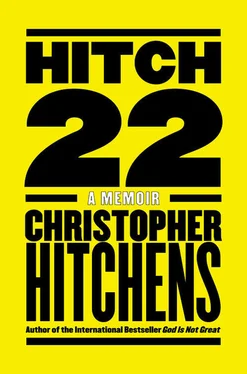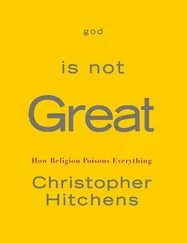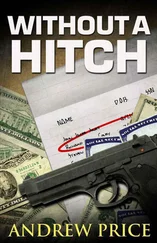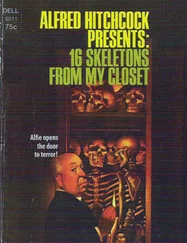Christopher Hitchens
HITCH-22
A Memoir
The desires of the heart are as crooked as corkscrews
Not to be born is the best for man
The second best is a formal order
The dance’s pattern, dance while you can.
Dance, dance, for the figure is easy
The tune is catching and will not stop
Dance till the stars come down with the rafters
Dance, dance, dance till you drop.
W.H. Auden, “Death’s Echo”
We are going to die, and that makes us the lucky ones. Most people are never going to die because they are never going to be born. The potential people who could have been here in my place but who will in fact never see the light of day outnumber the sand grains of the Sahara. Certainly those unborn ghosts include greater poets than Keats, scientists greater than Newton. We know this because the set of possible people allowed by our DNA so massively outnumbers the set of actual people. In the teeth of these stupefying odds it is you and I, in our ordinariness, that are here.
Richard Dawkins,
Unweaving the Rainbow
Ah, words are poor receipts for what time hath stole away…
John Clare, “Remembrances”

Caute
I can claim copyright only in myself, and occasionally in those who are either dead or have written about the same events, or who have a decent expectation of anonymity, or who are such appalling public shits that they have forfeited their right to bitch.
For those I have loved, or who have been so lenient and gracious as to have loved me, I have not words enough here, and I remember with gratitude how they have made me speechless in return.
Prologue with Premonitions

What can the England of 1940 have in common with the England of 1840? But then, what have you in common with the child of five whose photograph your mother keeps on the mantelpiece? Nothing, except that you happen to be the same person.
—George Orwell: “England Your England: Socialism and the English Genius” [1941]
Read your own obituary notice; they say you live longer. Gives you second wind. New lease of life.
—Leopold Bloom in
Ulysses
BEFORE ME IS a handsome edition of Face to Face , the smart magazine that goes out to the supporters of London’s National Portrait Gallery. It contains the usual notices of future events and exhibitions. The page that has caught and held my eye is the one which calls attention to a show that starts on 10 January 2009, titled “Martin Amis and Friends.” The event is to feature the work of a gifted photographer named Angela Gorgas, who was Martin’s lover between 1977 and 1979. On the page is a photograph taken in Paris in 1979. It shows, from left to right, myself and James Fenton and Martin, ranged along a balustrade that overlooks the city of Paris. I remember the occasion well: it was after a decent lunch somewhere in Montmartre and we would have been looking over Angela’s shapely shoulders at the horrible wedding-cake architecture of Sacre Coeur. (Perhaps this explains the faintly dyspeptic expression on my features.) In the accompanying prose, apparently written by Angela, is the following sentence about the time she first met the bewitching young Amis:
Martin was literary editor of the New Statesman , working with the late Christopher Hitchens and Julian Barnes, who was married to Pat Kavanagh, Martin’s then literary agent.
So there it is in cold print, the plain unadorned phrase that will one day become unarguably true. It is not given to everyone to read of his own death, let alone when announced in passing in such a matter-of-fact way. As I write, in the dying months of the year 2008, having just received this reminder-note from the future, that future still contains the opening of the exhibition and the publication of this memoir. But the exhibition, and its catalogue references, also exemplify still-vital elements of my past. And now, rather abruptly:
Between the idea
And the reality
Between the motion
And the act
Falls the Shadow .
T.S. Eliot’s “Hollow Men” do not constitute my cohort, or so I hope, even though one might sometimes wish to be among the stoics “who have crossed, with direct eyes, to death’s other Kingdom.” The fact is that all attempts to imagine one’s own extinction are futile by definition. One can only picture the banal aspects of this event: not in my case the mourners at the funeral (again excluded by the very rules of the game itself) but the steady thunk of emails into my inbox on the day of my demise, and the way in which my terrestrial mailbox will also become congested, until somebody does something to arrest the robotic electronic stupidity, or until failure to pay up leads to an abrupt cancellation of the bills and checks and solicitations, none of them ever in my lifetime arriving in the right proportions on the right day. (May it be that I gain a lifetime subscription to Face to Face , and that this goes on forever, or do I mean to say for all eternity?)
The director of the National Portrait Gallery, the excellent Sandy Nairne, has written me an anguished letter in which he not only apologizes for having me killed off but tries to offer both explanation and restitution. “The display,” he writes, “also includes a photograph of Pat Kavanagh with Kingsley Amis. A last minute change was made to the text, and instead of it reading ‘the late Pat Kavanagh’ it refers to yourself.”
This kindly meant missive makes things more poignant and more eerie rather than less. I have just opened a letter from Pat Kavanagh’s husband, Julian Barnes, in which he thanks me for my note of condolence on her sudden death from cancer of the brain. I had also congratulated him on the vast critical success of his recent meditation on death, sardonically titled Nothing to Be Frightened Of , which constituted an extended reflection on that “undiscover’d country.” In my letter to Julian, I praised his balance of contrast between Lucretius, who said that since you won’t know you are dead you need not fear the condition of death, and Philip Larkin, who observes in his imperishable “Aubade” that this is exactly the thing about the postmortem condition that actually does, and must, make one afraid (emphasis mine):
The sure extinction that we travel to
And shall be lost in always. Not to be here,
Not to be anywhere,
And soon; nothing more terrible, nothing more true…
And specious stuff that says no rational being
Can fear a thing it will not feel , not seeing
That this is what we fear…
So it is at once a small thing and a big thing that I should have earned those transposed words “the late,” which had belonged editorially to Julian’s adored wife and then became accidentally adhered to myself. When I first formed the idea of writing some memoirs, I had the customary reservations about the whole conception being perhaps “too soon.” Nothing dissolves this fusion of false modesty and natural reticence more swiftly than the blunt realization that the project could become, at any moment, ruled out of the question as having been undertaken too “late.”
But we are all “dead men on leave,” as Eugene Levine said at his trial in Munich for being a revolutionary after the counter-revolution of 1919.
Читать дальше













